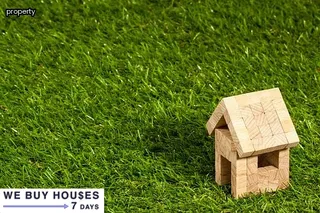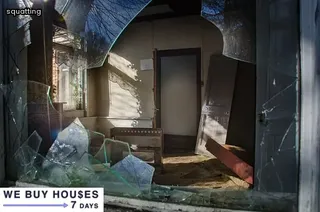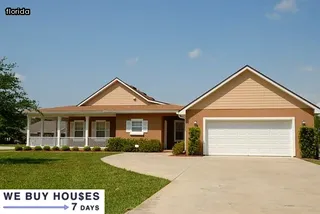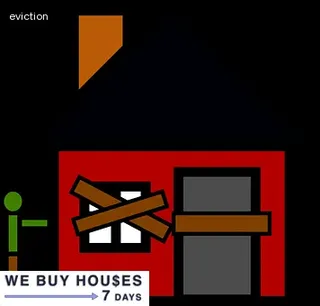Squatting is a term used to describe a person taking up residence in an abandoned or unoccupied property without the permission of the property owner. It is illegal in most parts of the world and can result in eviction and other legal repercussions.
However, squatters rights laws provide some protection for individuals living in abandoned properties. Squatters rights laws vary from state to state but they generally provide squatters with certain protections such as being able to remain on the premises until they are legally evicted by a court order.
Squatters may also be granted certain rights to improvements made to the property, such as making repairs or additions, if they have been living on the property long enough. In Florida, squatting can be considered a criminal act but some jurisdictions have passed ordinances that make it easier for squatters to establish their legal rights under state law.
Understanding these local and state laws is important for anyone considering taking up residence in an abandoned building or area.

The legal definition of a tenant and a squatter can be quite nuanced. Generally, tenants rent their accommodations through an agreement with the landlord, while squatters occupy property without permission from the owner.
Tenants have legal protections that are not afforded to squatters as they create legal obligations between themselves and the landlord. Squatters do not have these same rights when it comes to occupying someone else's property.
In Florida, tenants must be given written notice before they can be evicted, while squatters can be asked to leave immediately by law enforcement. It is also important to note that if a squatter has been living on the property for seven years or more in good faith, they may acquire a right of possession and become owners of the land in some cases.
The key difference between tenants and squatters is that tenants have certain legal rights and protections under state law, whereas squatters do not possess any formal recognition or protection from eviction or other forms of displacement from private property.
Determining if someone is a squatter on your property can be difficult and complicated. In order to determine this, you must first understand the difference between tenants and squatters in Florida.
Tenants are people who have legally agreed to live on a property for an extended period of time in exchange for rent; squatters are people who have taken up residence on a property without permission from the owner or legal tenant. Under Florida law, it is illegal for someone to take up residence on another's property without their explicit permission, even if no rent has been exchanged.
In order to properly identify squatters, it is important to look for signs such as the presence of personal items or furniture, evidence of habitation such as trash or food residue, utilities being used without permission or knowledge of the owner, unauthorized access to key areas of the property and other indicators that someone is living there without authorization. If any of these signs are present and cannot be attributed to legal tenants then it is likely that a squatter has taken up residence without permission.

In Florida, squatters have certain rights, including the right to occupy a property that they do not own or have legal permission to live in. In some cases, if a squatter can prove that they have been living in a property for a certain period of time, they may be able to establish their claim to the property (adverse possession).
Additionally, if the squatter has made improvements to the property, such as repairs and renovations, these improvements may also give them stronger claims to the property. However, it is important to note that squatter’s rights are not always absolute and may vary depending on different factors.
It is therefore essential for anyone interested in learning more about squatters' rights in Florida to understand all of the complexities associated with this type of housing law.
Evicting a squatter can be a difficult process and should not be taken lightly. It is important to understand the laws that govern squatters rights in Florida, as they vary from other states.
The first step in legally evicting a squatter is to serve them with an official notice of eviction. This notice must contain certain language prescribed by state law and must be served either in person or via certified mail.
After the notice has been served, the landlord must then file an Unlawful Detainer action in court to obtain a judgment of possession. If the court grants this judgment, it will authorize the sheriff or marshal to physically remove any remaining occupants from the property.
Landlords may also wish to consider seeking damages for any unpaid rent or other costs associated with the removal of squatters. Before taking any legal action, it is important for landlords to seek advice from an experienced attorney who can provide guidance on navigating state laws and help determine the best course of action for their individual situation.

Rental property owners in Florida have several strategies for keeping squatters away from their properties. The most effective strategy is to maintain clear, up-to-date records of all current tenants and previous occupants.
This should include all rental agreements and other documents that prove ownership and occupancy. Additionally, it is important to keep the property secure at all times with locks on windows and doors, outdoor lighting in dark areas, and motion sensors if possible.
Regular inspections of the property can also be a deterrent as squatters are less likely to attempt to gain access if they know someone is likely to discover them. Finally, communication with neighbors is key: they may notice someone unfamiliar on the property or hear suspicious noises coming from within it.
If a squatter does gain access to the rental property, document any damage they cause and contact law enforcement immediately. By utilizing these strategies, rental property owners can ensure their properties remain safe from squatters and their rights are upheld under Florida law.
In Florida, squatters’ rights are protected by a variety of laws. The most important law that protects against unlawful squatting is the Landlord Tenant Act (LTA).
This act provides protections from eviction and other forms of displacement for tenants who have occupied an uninhabited property for seven years or more. Additionally, under the LTA, a tenant must be given at least 15 days’ notice before being evicted.
Moreover, anyone who has lived in the property for more than four years is considered a legal tenant by the state and cannot be removed without due process. Furthermore, homeowners whose properties are being unlawfully occupied can take action to protect their land through filing an Unlawful Detainer Action with the court.
This requires the squatter to prove they have a valid claim to possession of the property or face eviction. Ultimately, understanding these laws is key to protecting against unlawful squatting in Florida and ensuring all parties involved are treated fairly and justly under the law.

In Florida, the penalties for unlawful squatting can vary depending on the circumstances. In general, squatters can be charged with criminal trespass, which is a first-degree misdemeanor punishable by up to one year in prison and/or a fine of up to $1,000.
If a squatter has caused any damage to the property or has taken possession with the intention of depriving an owner of their property rights permanently, they could face more serious charges such as burglary or grand theft. Additionally, if a squatter has been occupying the same property for longer than 7 years without interruption and without payment of rent or other compensation, they may face civil penalties such as being evicted from the property by court order.
It is important to remember that squatters are not afforded any special rights under Florida law and that all cases should be handled according to established legal precedent.
When facing a squatter situation, it is important to know who can help with the eviction process. In Florida, the primary parties responsible for helping homeowners remove squatters from their property are law enforcement and a qualified real estate attorney.
Law enforcement officers are able to physically enforce an eviction notice issued by the court, while a real estate attorney can provide invaluable legal advice on the best way to handle the situation. Additionally, some cities in Florida have housing departments that offer assistance with evictions.
Homeowners should take advantage of these resources and seek their counsel when dealing with removing squatters from their property. It is also recommended that homeowners document all correspondence related to the squatter situation and keep copies of all relevant documents in order to ensure that they are protected under the law.

When it comes to understanding squatters rights in Florida, it is important to know the term "holdover tenant." This refers to a tenant who has stayed in a rental property beyond the expiration of their lease.
In Florida, there are certain rights that holdover tenants have regarding eviction. Holdover tenants are legally allowed to remain on the property, and must be served with an eviction notice before they can be legally removed from the premises.
The landlord must also provide a reasonable amount of time for the tenant to vacate or find another residence, which is typically determined by state law. If the landlord fails to provide such notice or does not adhere to state laws regarding eviction procedures, then the tenant may be able to use this as grounds for legal action against them.
Additionally, holdover tenants may also have certain rights regarding rent payments; depending on the situation and any existing contracts between landlord and tenant, these rights can vary greatly. Ultimately, understanding squatters’ rights in Florida requires knowledge of how holdover tenants fit into these laws and what their rights are concerning eviction and rent payments.
Trespassing and squatting are two different concepts within the realm of property law. Trespassing is a criminal offense in which an individual has illegally entered onto another person's property without their knowledge or consent.
Squatting, on the other hand, is when an individual lives on someone else's land without permission but with an intention to gain legal rights over that land. In Florida, these two concepts are not considered the same and there are laws in place to protect those who have squatted for a certain amount of time from eviction.
As such, it is important to understand the differences between squatting and trespassing and how they can be applied to housing laws in Florida. The law recognizes that squatters who remain on a property for a set period of time can gain legal possession; however, this does not apply to trespassers who simply enter onto someone else’s property without permission.
Understanding the differences between squatting and trespassing can help you navigate Florida's housing laws related to these activities.

One way to proactively prevent squatters from invading your property is to ensure that all entry points are secure. This could include installing locks on doors and windows, or making sure gates and fences are maintained.
You should also keep an eye out for any suspicious activity around your property and contact the police if necessary. Additionally, it is important to be aware of any local laws that protect squatters in your area; understanding these laws can help you better prepare for potential squatting situations.
Lastly, if you have vacant properties, consider having a security guard or patrolling service monitor them regularly. Taking these proactive steps can significantly reduce the risk of encountering unwanted guests on your property.
In Florida, it is illegal for a person to occupy land without the consent of the owner. Squatting in residential properties is a criminal offense and carries penalties including fines and/or jail time.
Property owners have the right to evict squatters from their property, but the process can be complex. Depending on the circumstances, an eviction may require a court order or other legal action.
In some cases, law enforcement officers may need to be involved in order to remove squatters from a property. Property owners should consult with an experienced attorney who specializes in real estate law before attempting to evict a squatter in Florida.

Squatters rights in Florida are a complex legal issue with many nuances. The concept of squatters rights is based on the idea that a person can take ownership of a property by occupying it for a certain period of time.
Squatting is illegal in Florida, so before taking up residence on someone else’s property, it’s important to understand how squatters rights work and what the consequences may be if you don’t follow the law. Generally speaking, the law requires someone to occupy the property for at least seven years before gaining any legal right to ownership.
This means that even if you live in a place for a long period of time without permission from the owner, you won’t automatically gain ownership unless you meet all other relevant criteria. Additionally, squatting is not recognized as an acceptable form of housing and landlords can take steps to remove squatters and reclaim their property.
To ensure your safety and security, it is important to research local laws and consult an attorney when considering whether or not to pursue squatters rights in Florida.
In Florida, squatters are not legally protected. If someone is living in a property without the permission or knowledge of the rightful owner, they do not have any legal rights even if they have been residing there for a long period of time.
Squatters in Florida do not gain any rights to stay in a property until the rightful owner has taken court action to remove them from the premises. Until then, squatters can be evicted from an occupied property by law enforcement at any time and may also face criminal charges for trespassing.
It is important to understand that it is illegal for a person to occupy a property without the permission of the rightful owner and that squatters are not afforded any legal protection under Florida housing laws.
In Florida, the answer to the question of whether or not you can kick someone out of your house depends on a variety of factors, including the tenant's legal status and how long they have been living in the residence. Squatters rights are recognized in Florida, meaning that tenants who have lived in a property for a certain period of time without paying rent may have legal protections against eviction.
To further understand your rights as a landlord in the state of Florida and your options for evicting squatters from your home, it is important to first understand what constitutes squatting according to the law. Generally speaking, squatting is when an individual unlawfully occupies an abandoned or foreclosed property with no permission from the owner.
In order to legally evict a squatter from your property in Florida, you must prove that they are occupying the premises without permission and that they do not meet any of the criteria required for squatter’s rights. Additionally, you must also prove that you attempted to lawfully terminate their tenancy prior to taking any eviction action.